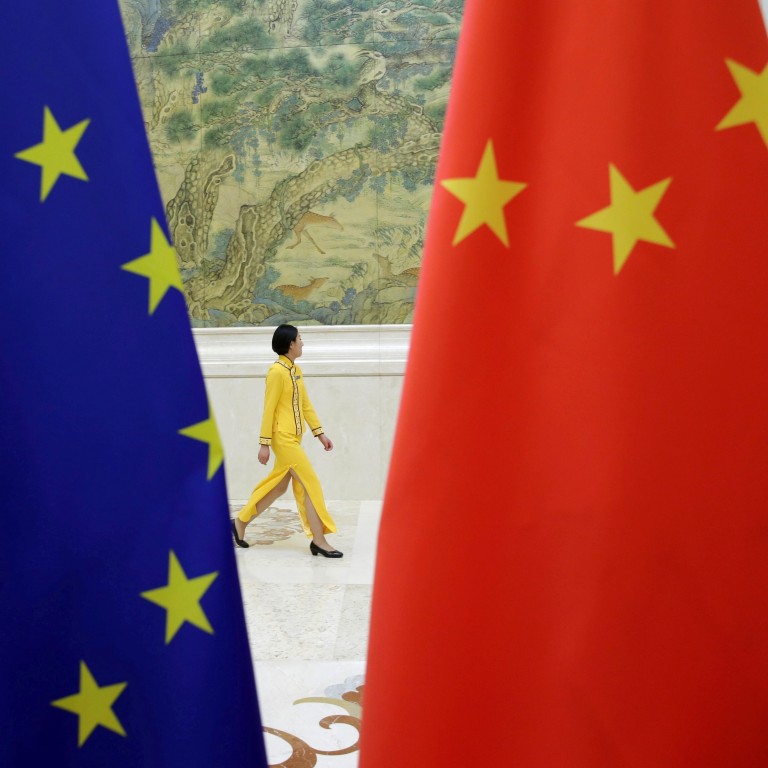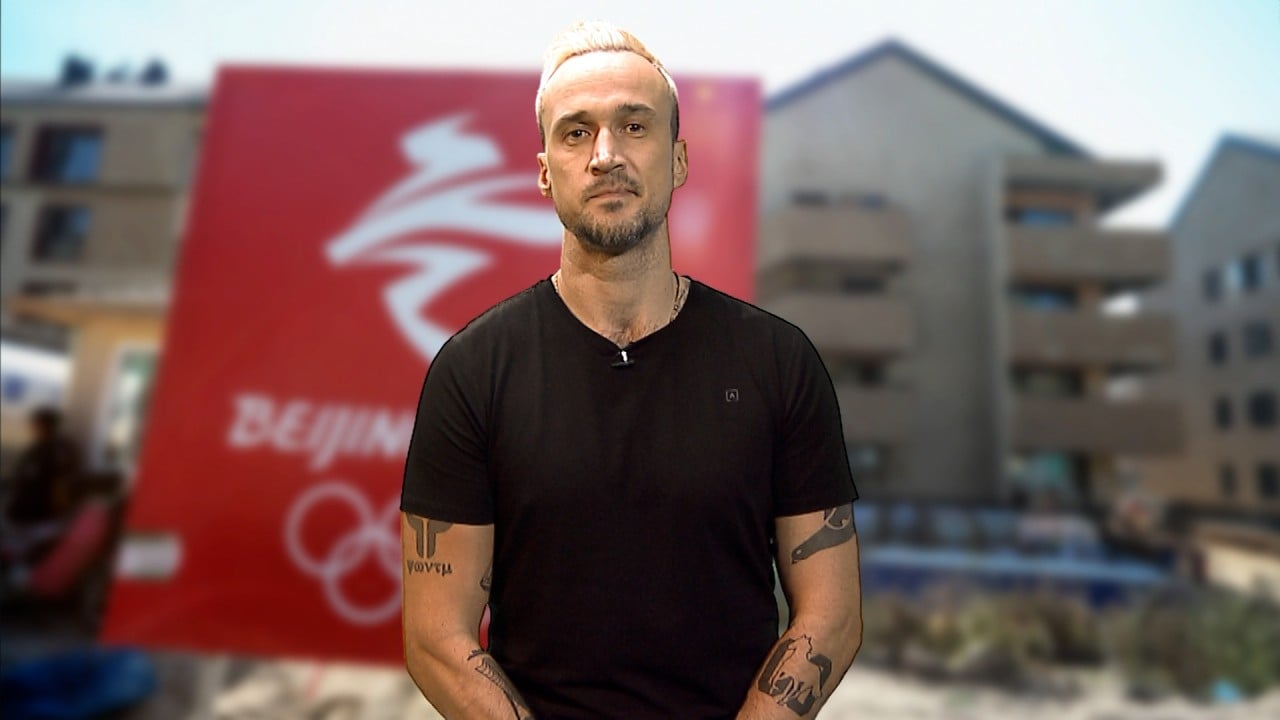
China insists investment deal talks with EU going smoothly, dismisses nuclear energy report
- Foreign ministry spokesman says it is ‘fake news’ to suggest Beijing has made a late demand for access to European energy market
- EU member states have also raised concerns about claims of forced labour in China
Investment deal talks were going smoothly between China and the European Union, Beijing said on Thursday, dismissing a report they had been complicated by its demand for access to the EU‘s nuclear power market.
But a Chinese expert said Beijing had shown “utmost sincerity” in its commitments to protect labour rights and level the playing field during the talks.
Xinjiang forced labour concerns threaten to derail China-EU deal
Wang Yiwei, a professor in European studies with Renmin University, said China had basically met EU demands on market access and fair competition, but a gap remained on cross-border data flow and data protection.
Wang also said China was expected to ratify the International Covenant on Civil and Political Rights – which includes clauses agreeing that no one shall perform forced or compulsory labour – in March next year, after signing it in 1997.
“It is unrealistic to counter on merely one agreement to address all problems between China and the EU. There are also other channels such as the annual human rights dialogues to solve specific concerns,” he said.
Casting further doubt on the deal, German magazine Wirtschaftswoche said on Wednesday that China had raised an additional demand on nuclear energy and stalled the negotiation.
EU agrees ‘in principle’ to an investment agreement with China
Wang Wenbin, Chinese foreign ministry spokesman, told a press conference on Thursday the report on nuclear energy was “fake news” and said the talks were “going smoothly”. On labour rights, he said China opposed forced labour and denied that such practices existed in China.
“The so-called forced labour is a fake proposition for China,” he said, calling talk of the practice in Xinjiang “fabricated lies” and adding that the people spreading the rumours should be held responsible.
Reinhard Buetikofer, chairman of the European Parliament’s Delegation for Relations with China, said the EU had told the Chinese side long ago that nuclear would be off limits. In an email reply to the South China Morning Post, he also said the deal was not dead, but “speedy delivery on the missing elements is getting less probable”.
Investment deal not a panacea for troubled China-EU relations, observers say
The European side has long called for an ambitious investment deal with Beijing. It is frustrated with the China-US phase one trade deal in January, saying it came at the expense of third-party access to the Chinese market and failed to address structural issues in the Chinese economy.
“Given the growing political discord between China and the EU amid the China-US rivalry, the agreement would mean the EU agrees to separate trade and economic issues from political and diplomatic ones,” said Shi Zhiqing, director of the China-EU relations programme at the Carnegie-Tsinghua Centre for Global Policy,

03:26
Will China face a massive boycott over the 2022 Beijing Winter Olympics?
“It is also in China’s interests to minimise the impact of the US-China tensions on EU-China relations, especially before the new US administration takes office,” he said.
But Shi also warned about strong pushback from the European Parliament on the human rights issue. “It’s not at all surprising if the talks stumble upon rights issues over Hong Kong and Xinjiang. As the US steps up efforts to isolate and impose sanctions against China, China’s overall relations with the EU have been hit hard.”
Buetikofer said Beijing’s failure to engage with the European Parliament was short-sighted. “Beijing seems to be of the opinion that they could leverage parliament by putting pressure on national governments. This is not how it works. It is too early to pass judgment on a draft deal that has not even been published,” he said.
“But it is already clear that, without a binding commitment on ILO core conventions, the European Parliament will not be content. After all, in the case of Vietnam, the parliament succeeded in getting a definite road-map towards ILO ratification.”
Additional reporting by Shi Jiangtao



